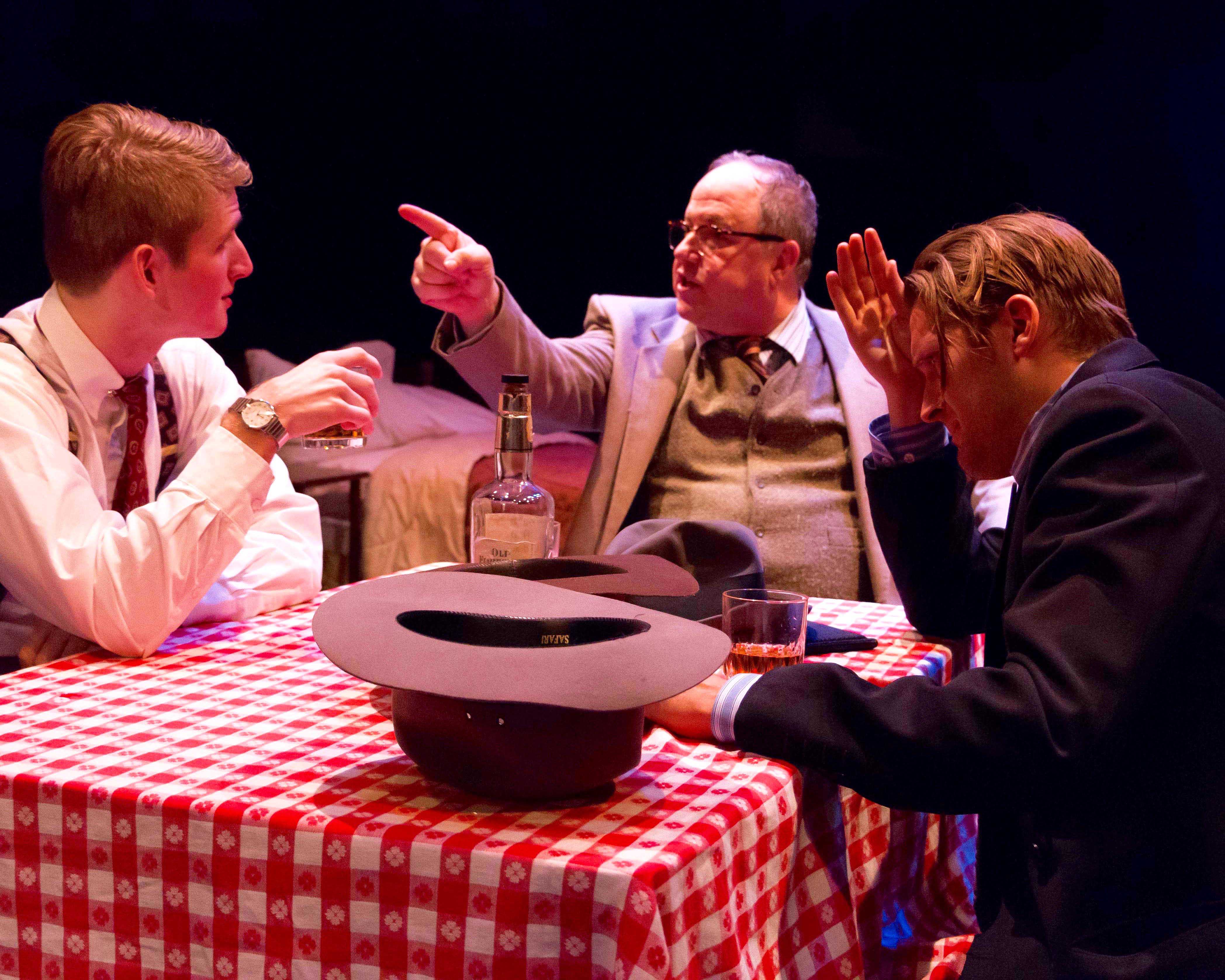The first scene in Arthur Miller’s “Death of a Salesman” says it all.
Willy Loman, peddler-ordinaire, burnt-out and weary from the road, appears on stage lugging two large sample cases. Laying them down on the kitchen floor for a moment, he sighs. Picking them back up, he reluctantly ambles on to the next room.
Willy, a sixty-something-year-old travelling salesman, is the hapless product of a society that points at consumerism and professional success as guiding stars to happiness and self-worth. The company he’s worked for all his life has, in his own words, eaten the orange and thrown away the peel. “But a man is not a fruit,” he says to his boss, exasperated, begging for a salaried position.
“Death of a Salesman” is considered a classic American drama to this day because the mirror it held up to society when it premiered in 1949, still casts an ugly image audience members today will recognize.
Its relevance is enough of a reason to attend the Long Beach Playhouse’s intimate run of the play—even though it does leave something to be desired.

World-weary salesman Willy Loman (played by Karl Schott) trudges through his kitchen holding his sample cases.
Karl Schott, who plays Willy Loman, schleps about with a thousand yard stare in a stiff, desultory manner. On this level, it’s obvious that his character is but a flesh-worn husk of his former self. But for all the effort to physically embody the effects of carrying a Sisyphean load for 30 odd years, Schott leaves the audience expectant.
Schott always seems to be just one note away from striking that gut-wrenching chord of tragic disillusionment so vital to the character of Willy Loman, but never quite nailing it.
His line delivery echoes a man who is tracing a circle, but Willy is a man whose life is tracing a downward spiral. Instead of pathetic, Schott’s Willy comes off as delirious and confused, like a runaway dementia patient, which doesn’t provide the same raw pathos Miller intended the character to elicit.
Though this is not a fatal flaw in the performance, it is evident. Otherwise, Schott is well-cast for the part. He has a wonderfully expressive face that at times reveals a haunting loneliness within Willy, especially in scenes when he is directly facing the audience.

Linda Loman (played by Harriet Whitmyer) comforts Willy Loman (played by Karl Schott) after a failed business trip.
The leading lady, Harriet Whitmyer, who plays Willy’s devoted wife Linda, gives the best performance, hands-down. She defends Willy’s humanity in a powerful scene also featuring the couple’s two sons, Biff and Happy, the latter of whom is played by California State University, Long Beach alumni Zackary Salene.
“Willy Loman never made a lot of money. His name was never in the paper. He’s not the finest character that ever lived. But he’s a human being,” she says to her sons huddled around the dinner table.
Whitmyer plangent pleas channel the agony of wife who has spent a whole marriage watching her husband pared down to a parody of his dreams by the corporate machine. In doing so, she makes the audience feel a heart-rending empathy for old Willy, if only for a moment.
The play’s set is sparse and for good reason. It allows for a seamless flow between the past and the present. Willy’s constant flashbacks are handled deftly, maintaining a feeling of schizophrenic chaos without being disruptive to the storylines overall flow.
Just as Willy’s mindscape seems to teeter back and forth between reality and memory, so does the set. This is greatly due to the well-executed lighting, which, when appropriate, helps compartmentalize the small black box theatre’s set into the corridors of Willy’s memory.
The set’s small size also adds a streak of claustrophobic anxiety that compliments the play’s theme of being boxed in.
The quiet desperation of Willy Loman reminds us of our own workaday fathers or mothers, sisters or brothers; perhaps even ourselves—scampering toward the big cheese at the end of the rat race, only to find total emptiness.
Miller intended the “Death of a Salesman” to be a scathing indictment of capitalistic ideals, a tragic depiction of the absurd notions of success Americans continue to cling onto. This message shines through any shortcomings the Long Beach Playhouse’s run might suffer from.
The play runs until June 20 and show times are at 8 p.m. Fridays and Saturdays and 2 p.m. on Sundays. Ticket prices are $14 for students, $24 for adults, and $21 for seniors.




